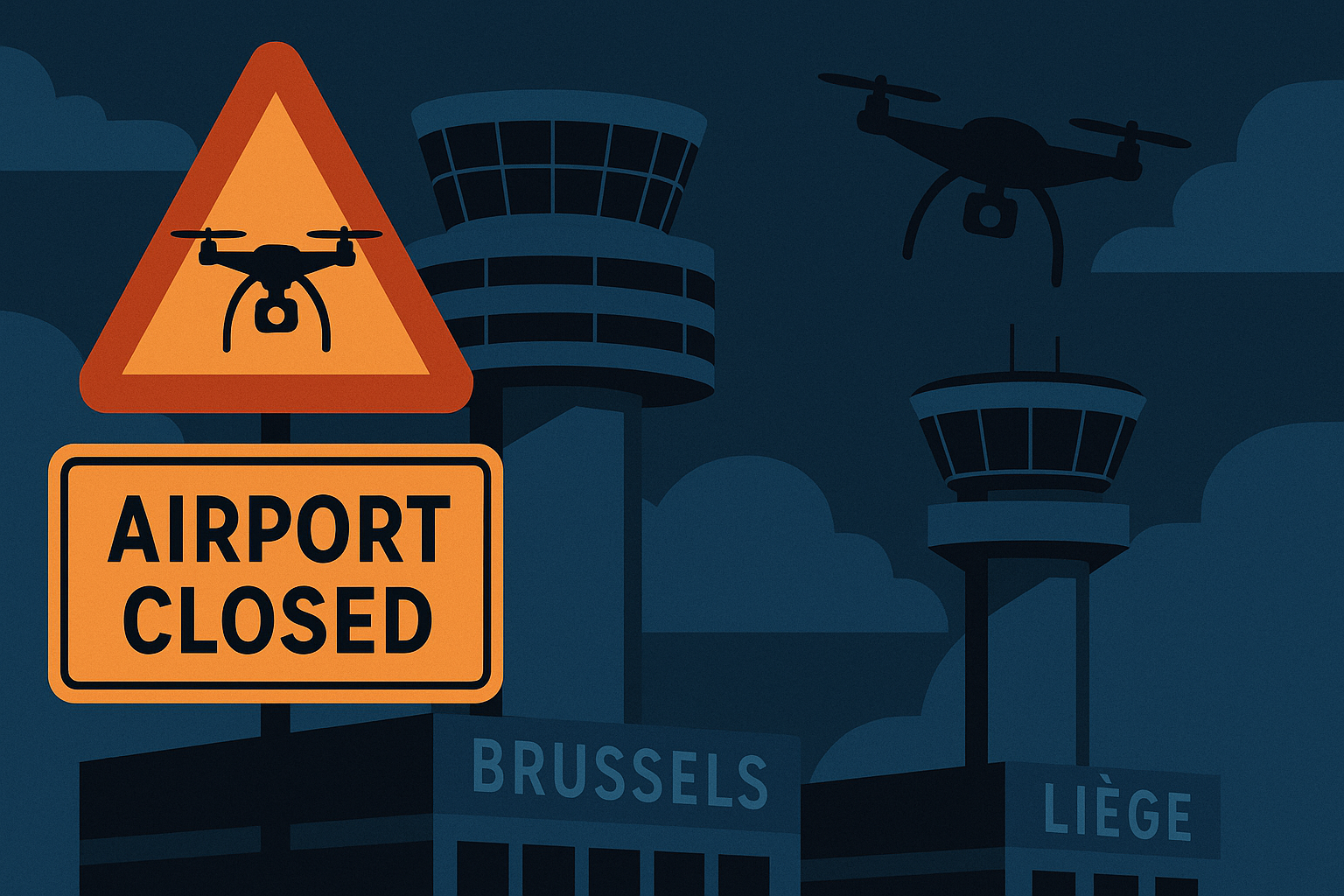Belgium’s national security council convened an emergency meeting on Wednesday following multiple drone sightings that forced the temporary closure of Brussels Zaventem and Liège airports, exposing growing concerns over European airspace security.
Airports Closed and Flights Disrupted
The first reports of drones near Brussels and Liège airports emerged around 8:45 p.m. local time on Tuesday, prompting an initial 30-minute shutdown of both airports. When drones were spotted again later in the evening, authorities extended the closure indefinitely, grounding dozens of flights and leaving passengers stranded.
By Wednesday morning, operations at Zaventem Airport were still affected. The airport issued a statement warning travelers of “delays and flight cancellations” and urging passengers to check updates before arriving.
A spokesperson for Belgian Defence Minister Theo Francken confirmed that security services are investigating the incident, though no further details were released due to the sensitivity of the matter. The national security council met early Wednesday to coordinate a response.
Pattern of Drone Activity Across Belgium
The incidents are the latest in a string of drone intrusions in Belgian airspace. Earlier this week, drones were detected flying over Kleine Brogel Air Base—a key military installation near the Dutch border—for three consecutive nights.
Francken told national broadcaster VRT that authorities suspect the activity may be linked to a foreign spying operation, though he declined to name potential culprits.
“We cannot rule out that this is an intelligence-gathering effort,” Francken said. “But for now, we are gathering evidence and treating it as a national security issue.”
Europe-Wide Drone Incursions
Belgium is not alone in facing this new wave of airspace violations. At least 10 European countries, including Denmark, Lithuania, Poland, France, and Germany, have reported drone incursions in recent months—some serious enough to disrupt air traffic and temporarily close airports.
In Denmark, drones sighted over energy infrastructure and airbases in September led Prime Minister Mette Frederiksen to suggest possible Russian involvement.
“We cannot rule it out,” Frederiksen said, adding that she was “in favour of shooting down such drones if necessary.”
In Germany, lawmakers have also called for granting authorities the legal power to neutralize drones that enter restricted or national airspace without authorization.
EU Pushes for Coordinated Anti-Drone Measures
The European Commission last month described the repeated drone incursions into EU member states’ airspace as “a growing and urgent security threat.” In response, Brussels proposed the creation of a pan-European “anti-drone network”, designed to help countries detect, intercept, and neutralize unmanned aerial vehicles (UAVs).
The initiative would draw on lessons from Ukraine’s air defense experience in countering Russian drone attacks, aiming to establish a shared EU-wide response system capable of rapid coordination between military and civilian agencies.
Heightened Alert for European Airspace
The closure of two of Belgium’s busiest airports underscores how unmanned aerial threats have evolved from tactical battlefield tools into a strategic security risk for civilian infrastructure.
As investigations continue, officials in Brussels are under pressure to determine whether the latest incursions were part of a coordinated surveillance campaign or isolated incidents.
For now, the country remains on high alert. With similar drone sightings spreading across Europe, the push for a unified EU air defense framework is gaining momentum — and the latest disruptions over Belgium may serve as a critical wake-up call for the continent.








